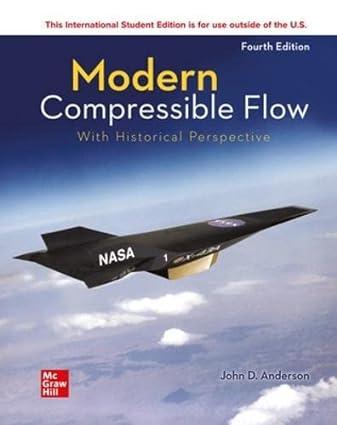Consider a liquid-fueled rocket engine burning liquid hydrogen as the fuel and liquid oxygen as the oxidizer.
Question:
Consider a liquid-fueled rocket engine burning liquid hydrogen as the fuel and liquid oxygen as the oxidizer. The hydrogen and oxygen are pumped into the combustion chamber at rates of \(11 \mathrm{~kg} / \mathrm{s}\) and \(89 \mathrm{~kg} / \mathrm{s}\), respectively. The flow velocity and pressure at the exit of the engine are \(4000 \mathrm{~m} / \mathrm{s}\) and \(1.2 \times 10^{3} \mathrm{~N} / \mathrm{m}^{2}\), respectively. The exit area is \(12 \mathrm{~m}^{2}\). The engine is part of a rocket booster that is sending a payload into space. Calculate the thrust of the rocket engine as it passes through an altitude of \(35 \mathrm{~km}\), where the ambient pressure is \(0.584 \times 10^{3} \mathrm{~N} / \mathrm{m}^{2}\).
Fantastic news! We've Found the answer you've been seeking!
Step by Step Answer:
Related Book For 

Question Posted:





